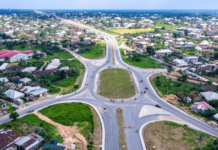In the heart of Lagos, Nigeria’s economic hub, a small business owner named Chukwuma faced an all-too-common dilemma. After his store was ransacked by thieves, he reported the incident to the local police, hoping for swift justice. Instead, he was met with demands for bribes to initiate an investigation. Disheartened and out of options, Chukwuma decided not to report future incidents, considering it a waste of time and money.
This narrative is not an isolated incident but reflects a pervasive issue within Nigeria’s law enforcement system: police corruption. This corruption not only undermines the trust between the police and the public but also has profound impacts on crime rates across the country.
One of the most insidious effects of police corruption in Nigeria is the widespread underreporting of crimes.

Victims, disillusioned by their encounters with corrupt officers demanding bribes to perform basic duties, often choose silence over seeking justice. The fear of re-victimization or further exploitation by the police discourages many from reporting crimes at all. This creates a significant gap in crime statistics, masking the true extent of criminal activity and hampering efforts to allocate resources effectively to combat crime.
As fewer crimes are reported, it appears as though the crime rate is lower than it is, leading to complacency or misinformed policy decisions by authorities.
In response to the failure of the police to provide adequate protection and justice, many communities have taken matters into their own hands, giving rise to vigilantism. These self-appointed enforcers often emerge from the frustration and fear experienced by citizens who feel abandoned by the state.
While vigilantism might offer a temporary sense of security, it introduces a new set of problems, including mob justice, human rights abuses, and the potential for escalating violence.
Vigilante groups, while initially formed to protect communities, can sometimes evolve into criminal enterprises themselves, exerting control over territories and demanding “protection fees” from residents and businesses. This further erodes the rule of law and perpetuates a cycle of violence and insecurity.
The interplay between police corruption, underreporting of crimes, and vigilantism creates a complex web of challenges for Nigeria. Corrupt officers not only fail to deter crime but also actively contribute to its proliferation by shielding criminals who can afford to pay for their protection. This emboldens criminal elements, knowing that the threat of police intervention is minimal.
To break this cycle, comprehensive reforms are necessary. These include stringent measures to combat police corruption, such as improving oversight, increasing transparency, and ensuring accountability.
Enhancing the professionalism and morale of the police force through better training, fair wages, and support systems can also help restore public trust. Equally important is the need to strengthen judicial processes to ensure that justice is accessible and fair, reducing the impetus for vigilante justice.
In conclusion, the impact of police corruption on crime rates in Nigeria is profound and multifaceted. It not only skews crime statistics and undermines public trust but also fosters a dangerous environment where vigilantism thrives.
Addressing this issue requires a concerted effort from the government, civil society, and the international community to implement and sustain meaningful reforms. Only then can Nigeria hope to create a safer, more just society for all its citizens.





